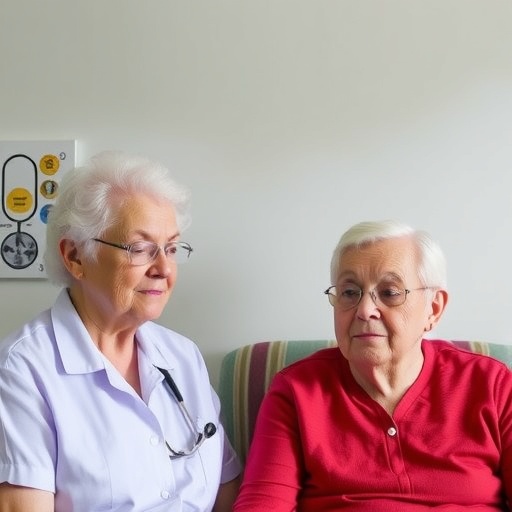In an era where technological advancements and medical breakthroughs are rapidly transforming healthcare, a silent threat looms over clinical practice—ageism in medicine. This critical issue, although often overlooked, has implications that reach far beyond individual patient care and pose significant ramifications for the integrity of our healthcare systems. The contemporary medical community must confront ageism, as it not only undermines the dignity and respect owed to older patients but also jeopardizes the quality of care provided to them. This article sheds light on the alarming prevalence of age-related biases within healthcare environments and explores both the systemic and personal dimensions that fuel these detrimental prejudices.
Ageism manifests as discrimination against individuals based solely on their age, often rooted in stereotypes that associate aging with decline and incapacity. Despite the growing population of older adults who are more active and engaged than ever before, many healthcare practitioners still hold antiquated beliefs that hinder their ability to provide equitable care. Research continues to reveal that these biases affect clinical decision-making processes and can lead to inappropriate treatment options, reduced quality of care, and adverse health outcomes for older individuals.
The medical community’s entrenched ageism often reflects a broader societal belief system that devalues older adults. This systemic issue is reflected in medical training and education, where younger practitioners may be inadequately prepared to address the unique healthcare needs of older patients. Such shortcomings can result in vital clinical symptoms being overlooked or misinterpreted, leading to potentially harmful consequences. Clinicians must receive comprehensive training that includes distinction in geriatric care, bridging knowledge gaps, and fostering a more nuanced understanding of aging and health.
Moreover, the physician-patient relationship is crucial in combating ageism. Trust forms the bedrock of effective healthcare interactions, yet age-related stereotypes can undermine this relationship. Patients often feel dismissed or marginalized, leading to disengagement and reluctance to seek necessary care. Healthcare providers must actively work to ensure that older patients feel valued and understood while promoting an environment where their health concerns are prioritized.
The ramifications of ageism in clinical settings extend to health policy and resource allocation. Older adults, who often face complex health challenges requiring multifaceted treatment approaches, may not receive the resources or attention they deserve within overburdened healthcare systems that prioritize younger populations. By neglecting to address age-related disparities, health systems further entrench inequities, which ultimately diminish the overall quality of care and patient outcomes.
Ageism can also lead to significant health disparities among older adults. These disparities are often exacerbated by socioeconomic factors, cultural context, and accessibility issues. Marginalized groups, particularly those in lower socioeconomic strata, encounter heightened barriers exacerbated by ageism. Consequently, it becomes imperative for medical researchers and practitioners to advocate for changes that promote equality and inclusivity in the healthcare landscape.
As efforts to eliminate ageism in medicine gain momentum, it will require collaborative initiatives involving healthcare professionals, educators, policymakers, and society at large. Addressing ageism is not merely an ethical obligation; it represents a comprehensive approach to enhancing patient care, improving health outcomes, and advancing the medical profession’s integrity. Strategies can include advocacy for age-friendly healthcare environments, organizational measures, training programs, and community engagement efforts that empower older adults.
Recent advancements in research and policy underscore the importance of addressing ageism head-on. Engaging the geriatric population in research studies and clinical trials can help unravel the complexities of aging while creating treatment plans that are informed by evidence rather than stereotypes. By prioritizing the representation of older adults in research initiatives, the healthcare system can better understand their needs and champion their rights.
In summary, ageism in medicine remains a pressing concern that requires immediate and sustained attention from all stakeholders within the healthcare sphere. Dismantling these biases is not just about improving care for one demographic; it’s about fostering a more inclusive and responsive healthcare system for everyone. The path to clinical excellence demands the promotion of respect and dignity for patients of all ages, an imperative that can lead to enhanced health outcomes and a more equitable healthcare landscape.
Ultimately, the dialogue surrounding ageism in medicine should encourage introspection and inspire collective efforts to pave the way for a future where older adults are treated with the respect and care they deserve. Every voice matters in this movement, and as advocates and healthcare providers unite, we can redefine what it means to practice medicine, ensuring that age does not become a barrier to receiving quality healthcare.
Subject of Research: Ageism in Medicine
Article Title: The Silent Threat to Clinical Excellence: Ageism in Medicine
Article References:
Cheung, K. The Silent Threat to Clinical Excellence: Ageism in Medicine.
J GEN INTERN MED (2025). https://doi.org/10.1007/s11606-025-10027-5
Image Credits: AI Generated
DOI: https://doi.org/10.1007/s11606-025-10027-5
Keywords: Ageism, Medicine, Healthcare, Gerontology, Equality, Patient Care, Discrimination, Geriatric Care, Health Disparities, Clinical Excellence.
Tags: addressing ageism in clinical practiceageism in healthcarebiases in clinical decision-makingconfronting age-related biasesdiscrimination against older adultshealthcare disparities for elderlyimplications of ageism in medicineimproving care for older populationsquality of care for seniorsrespect for older patientsstereotypes about agingsystemic age-related prejudices





